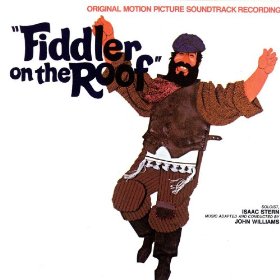Nailing the Subjunctive: If I Were a Rich Man
 We (Edith Hope Fine and Judith Josephson) are the Grammar Patrol. Both of us taught for years and are now writers, with thirty plus books between us, including our two popular grammar guides, Nitty-Gritty Grammar and More Nitty-Gritty Grammar. For close to twenty years, we taught writing and grammar basics and now we blog about grammar for writers.
We (Edith Hope Fine and Judith Josephson) are the Grammar Patrol. Both of us taught for years and are now writers, with thirty plus books between us, including our two popular grammar guides, Nitty-Gritty Grammar and More Nitty-Gritty Grammar. For close to twenty years, we taught writing and grammar basics and now we blog about grammar for writers.
When we came to the topic of the subjunctive verb mood during our years of teaching our “Nitty-Gritty Grammar” class, we’d get blank stares and shivering spines. “Subjunctive? What the heck?” was the usual response.
But the subjunctive is cool. And useful. Think “shoulda, woulda”!
 To start, picture us in our Grammar Patrol hats dancing around the classroom, arms high, singing “If I were a rich man . . . Daidle daidle deedle daidle dum . . .”
To start, picture us in our Grammar Patrol hats dancing around the classroom, arms high, singing “If I were a rich man . . . Daidle daidle deedle daidle dum . . .”
We’d get a laugh. (Yep, we really did this!) The tension would ease. And we’d highlight the key word: were.
“We may someday be rich,” we’d tell our students, “but we’ll never be rich men.” We had traveled together to the land of imagination.
“If we were in Paris right now,” we’d say, “we’d not be using were. Our postcards home would read, “Here we are in Paris.” (That’s a true, not imagined, trip.)
Wishes. Dreams. Things contrary to fact. That’s when the subjunctive takes a starring role.
Has something happened? Is it real? If not, think subjunctive. Look for “if,” “as if,” and “as though”—they can signal the subjunctive mood:
It seemed as though we were flying through space. (We weren’t.)
So what’s the correct choice for these examples? Finish each “If” sentence by imagining what might happen if those things were true:
If I was/were CEO of General Motors . . .
If I was/were to win the lottery . . .
If I was/were to go for my third Ph.D. . . .
If I was/were to fly to the moon . . .
If I was/were you, I’d stop whining.
Bingo. If you thought were, you’ve got it. You’re not the CEO, haven’t won the lottery, haven’t started on your third Ph.D. or flown to the moon, and you certainly are not the person to whom you’re speaking (impossible). Substituting were for was is the most common use of the subjunctive.
Digging Deeper
There’s more. Let’s dig deeper.
Use the subjunctive mood . . .
• With verbs followed by “that,” such as demand, insist, recommend, request, suggest, and urge use “be,” plus a participle:
Ted requests that healthier snacks be offered in the break room.
• With a “to be” verb in the present tense:
It is required that all contracts be evaluated by the eagle-eyed Miss Jackson.
• With other verbs, whether present or past, use the present form of the subjunctive: It has no s even in the third person singular where you usually find it (he runs):
Our coach requires that every team member wear (not wears) orange socks.
(present)
The storm required that each snowplow operator work overtime (not works).
(past)
• With wishes—use the past subjunctive tense to express a wish.
The Harpers wish they had saved for vacation.
(past subjunctive)
Antonio wished he were hiking in the Rockies.
(past subjunctive)
Other Words to Watch For
Two other words can indicate the subjunctive mood: should and would.
Should it rain on Tuesday, the barbeque is off.
Would that I’d booked that cruise instead of that boring seminar.
As always, there are exceptions. If a statement begins with “if,” but is true, don’t use the subjunctive. Here’s one for the politicians:
If I was wrong, I apologize. (You very well could have been wrong.)
The same goes for using was in the past tense in a true sentence:
If George Clooney was in that limo, I didn’t see him. (George could have been in the limo.)
Summing Up
To sum up, if everyone were to memorize just the if/were connection, the world would be a more subjunctive place. (Sorry. Grammar joke.) See you next month.
September 9th, 2014 at 3:57 pm
Yikes, I’ve been using it wrong now and then. Thanks!